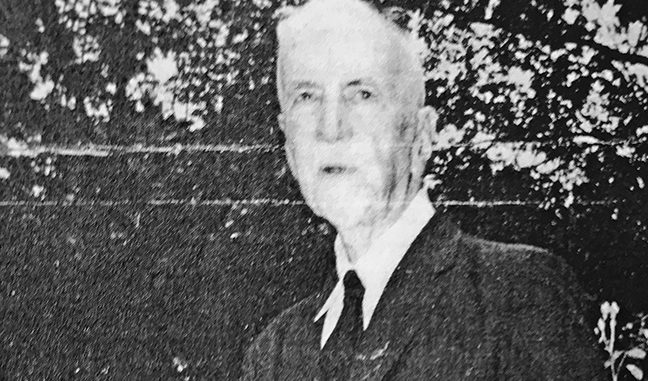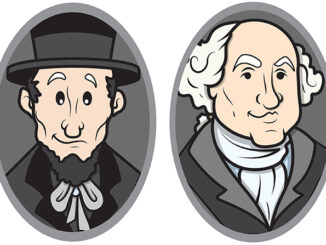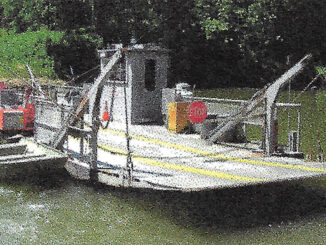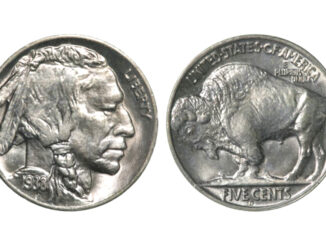
Residents of Bowling Green and Warren County have been blessed during the years with an impressive line of individuals leading this community. In the past six years I have written often of the outstanding individuals who have guided the progress of our area and have established a quality of lifestyle the homeland has enjoyed since its beginning and still finds beneficial today. The quality of leadership in business, government, education, entertainment and other facets of our lives has had a distinctive element recognized even across our state and in some national realms. Occasionally, it behooves us to stop and recognize some of these personalities who have impacted our lives. The focus today is spotlighting certain judicial leadership.
Before Warren County became a separate county in 1797, it was part of the Logan jurisdiction and the circuit judge of the area was appointed to serve Logan, Warren, Muhlenburg and Christian counties. For several years various judges were appointed to serve this area. It was not until 1831 that the first Bowling Green citizen was selected as a circuit judge. Asher W. Graham served until 1849 when he was appointed to the State Court of Appeals. In 1850 the Kentucky Constitution was adopted that made circuit judges elected positions and not appointed by the state. Graham was elected and returned to Warren County where he served until his death in 1866 while in office. His outstanding service to the county was equally matched with his leadership role in his Presbyterian Church and in other aspects of public life.
Graham was followed in the circuit judge position by several worthy leaders, but none as outstanding as John Barrett Rodes. Judge John B. Rodes was a Bowling Green native. He was the youngest son of Robert and Mary Grider Rodes and was born September 22, 1870. He graduated from Ogden College in Bowling Green in 1881 and received his law degree from the University of Virginia. He was sworn into the Bowling Green Bar Association in 1892 at the age of twenty-one. John Rodes’ first partner in law practice was Judge W. E. Settle. He later worked with Hon. McQuown and in 1906 with Judge James C. Sims.
In 1906, as a member of the law firm of Sims, Dubose and Rodes, he was appointed the lawyer for the L&N Railroad, a position he held with notable service for 42 years. During those years he became known as a leading lawyer throughout the state and received many commendations. In 1948, as a member of the Rodes, Harlin, Willock law firm, he resigned as lawyer to the railroad company to accept the commission as Judge of the Eighth District of Kentucky. He presided on the bench for 16 years.
Judge Rodes was a quiet, dignified, soft-spoken individual. He was well loved by many for his modest, subdued manner and his gentle approach to others. His uncommon ability to see the issues before him with perception and respect earned him esteem from all who knew him. He earned the praise and acknowledgement of members of the Kentucky State Bar Association who regarded him as the Dean of Kentucky Jurists when they honored him on his 85th birthday.
Judge Rodes’ leadership was active in many facets of our city’s history. From 1930-1933, he was mayor of Bowling Green. During his administration, many outstanding accomplishments moved the city forward. He promoted the existence of our remarkable sewer system. He had a respect for our historical past, which led him to promote the restoration of the Pioneer Cemetery which had become like a wasteland. Judge Rodes had the foresight to realize the growth potential of our community and made it possible for land to be annexed for future use such as the one known to us today as Covington Park and Golf Course. His emphasis on sanitary measures for local milk supply was just one more example of his progressive guidance. His mere presence in this elected office lifted the quality of leadership throughout the area.

Many local organizations benefited from the judge’s contributions. He was a member of the Presbyterian Church, Sunday school teacher and elder. He served as one of the directors of the Bowling Green Boys’ Club, a trustee of Ogden College, a member of the Board of Regents, President of the Kentucky Bar Association, and a writer and researcher of Bowling Green chronicles. He is known for his love of local history and his writings and presentations have helped to secure our knowledge of our past. His “Early History of Bowling Green” is a detailed document based on his protracted research of files in the courthouse showing the progression of the city’s development from pioneer days forward. It is a classic.
Among the most collectable of personal and professional documents existing in the Western Kentucky Museum archives are those relating to Judge Rodes and his family. It is difficult on paper to try and acknowledge a contribution of a person of John Barrett Rodes’ stature. His expertise in his field, his kindness, his patience, his worth as an individual, is not easy to define. Bowling Green and Kentucky have been blessed with his existence. As the oldest individual to take the oath of office in the state, he was honored by many and remembered with love. Following his death in March 1970, he was buried in Fairview Cemetery.
-by Mary Alice Oliver
About the Author: Mary Alice Oliver is a Bowling Green native who is a 1950 graduate of Bowling Green High School. She retired from Warren County Schools after 40 years in education. Visiting familiar sites, researching historical records and sharing memories with friends are her passions.
Photos courtesy of WKU Library Special Collections





